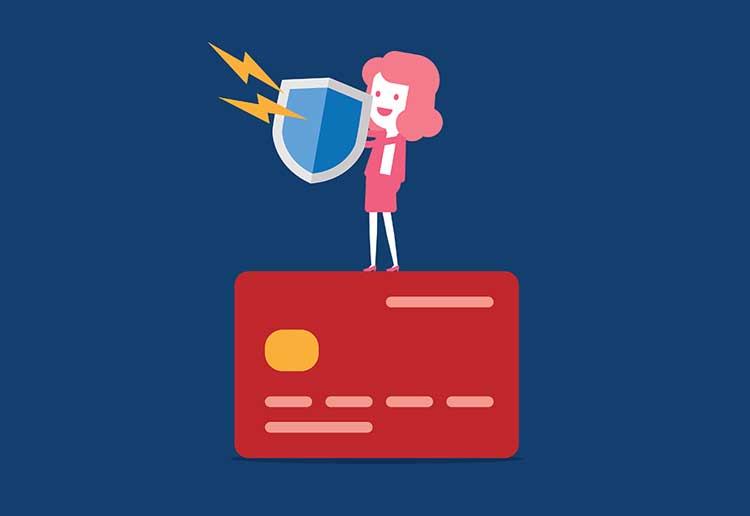Last updated July 2025

Fraudulent charges. Scams. Defective merchandise. Shoddy plumbing jobs. Car repair shops that don’t repair anything. Unfair fees. Shipments that never arrive. Even careful consumers sometimes run into problems.
Consumers’ Checkbook often advises readers to pay using credit cards because they provide automatic safeguards against many potential problems. The genesis of these baked-in consumer protections is the federal Fair Credit Billing Act, which shields you from fraud by requiring credit card companies—not consumers—to resolve fraudulent charges. The law also safeguards against billing errors.
But many consumers don’t realize that the Fair Credit Billing Act also requires that credit card companies give them the chance to dispute charges and withhold payment for goods and services that they didn’t accept or that weren’t delivered as promised. This means that if you aren’t satisfied with an item or service you purchased—or if it was never delivered—you can contest the charge. The credit card company then must investigate and, if it rules in your favor, remove the purchase from your bill.
Credit Card Companies Usually Side with Consumers
When you request a “chargeback,” the seller can protest. It may claim you made no effort to resolve the matter, refused to return goods that you say are unsatisfactory, or that the goods are exactly what you ordered. But sellers rarely succeed in reversing chargebacks. So as long as you return the merchandise (or try to return it) or document the product or service defect (for example, by having a second auto repair shop correct a lousy repair and write up what they did), you’re likely to win the dispute and get your money back. Sometimes credit card companies simply eat contested charges for small purchases to satisfy customers, rather than launching investigations.
In our experience—feedback from our members and staff who requested chargebacks—credit card companies are far more likely to side with consumers than businesses in disputes. Billing mistakes and cases of theft and fraud, in particular, are almost always handled promptly—no surprise since laws clearly protect consumers from these types of problems. For disputed transactions related to bad service or defective merchandise, we find credit card companies also usually remove charges quickly.
Because credit card issuers want to keep customers happy, the protections they provide are, in practice, even broader than your rights under the law. For example, while the law states that you have to contest a charge within 60 days of receiving a bill, most banks that work with Visa and Mastercard give their customers 120 days to do so. On a case-by-case basis, many allow even more time—especially if you can document you had no way of knowing about the problem any sooner. And while the law protects you only for purchases in your home state or within 100 miles of your current billing address, credit card companies usually allow you to contest any charge. American Express, in particular, is well known by retailers to have a very generous policy toward customers.
Debit Cards Provide Fewer Protections
When you pay with a credit card, you are tapping a line of credit provided by the bank. Pay with a debit card, and you are authorizing a withdrawal from your checking account. So, the financial risks are significantly different.
Although when banks issue credit cards that are part of Visa’s or Mastercard’s systems they are obligated to abide by the payment network’s rules, which include requirements for dispute resolution, we find that credit card companies are far more willing than debit-card issuers to help consumers resolve problems.
“The banks are stingy with giving you your money back when they think they can get away with delaying it, or convincing you that it’s your problem and not their problem,” said Ed Mierzwinski, senior director of the Federal Consumer Program at the U.S. Public Interest Research Group.

Start by Giving Companies a Chance to Make Things Right
Before disputing a charge, give the offending company a reasonable chance to resolve the problem. Chargebacks are serious problems for businesses: They lose the disputed amounts plus pay fees typically ranging from $20 to $100. If companies get too many chargebacks, they can lose their right to accept credit cards. The process is so consumer-friendly and powerful that often just threatening to make a chargeback request might prompt a business to do the right thing.
Don’t take advantage. Just as credit card companies keep a lookout for companies that abuse their customers, they also keep track of cardholders who dispute too many charges. Although it’s a rare occurrence, your company can cancel your account or refuse to investigate future problems if you contest too many transactions.
Keep in mind that a chargeback on your credit card account doesn’t mean the seller has no rights against you. It can still try to get paid by suing you.
How to Dispute a Charge
To contest a charge, ask the bank or company that issued your credit card for its chargeback procedures. Often, you can do this via the company’s website: Simply go to your list of purchases, select the transaction, and use a link to report a problem.
During the time that the credit card company investigates, the questionable transaction is removed from your outstanding balance, and you are not required to pay it or the portion of your balance, nor any interest on the disputed amount, until the matter is resolved. If the credit card company rules in your favor, it simply pulls the money out of the seller’s account and credits yours. Even if you already paid your credit card bill in full, you still can contest the charge.
If at First You Don’t Succeed, Keep Trying
Sometimes credit card companies side with sellers, even when the merchants clearly were in the wrong. Consumers most often lose disputes when they signed contracts that included clauses such as “buyer beware” or “all sales final.”
But if your request for a chargeback is denied, don’t give up. We’ve even heard from consumers who got their money back when disputes were with bankrupt or out-of-business companies.
Several summers ago, I was hit with a $276 “special cleaning fee” to vacuum my kids’ crumbs from the backseat of a rental car from Alamo in Zurich. Representatives with Alamo’s U.S. corporate office admitted the charge was “ridiculous,” but because its location in Switzerland is owned by a licensee, they couldn’t refund the charges. Its requests to its Zurich office to do so were ignored for months.
I disputed the charge with my credit card company (Barclaycard), but it initially sided with the rental car company and sent me a letter blandly saying there was insufficient evidence to reverse the charges. After spending a few more frustrating months asking Alamo for a refund, with no success, I called my credit card company and insisted the fee was unfair—that the burden was on Alamo, not its customer, to justify the charge. Barclaycard finally relented and wiped out the transaction.


